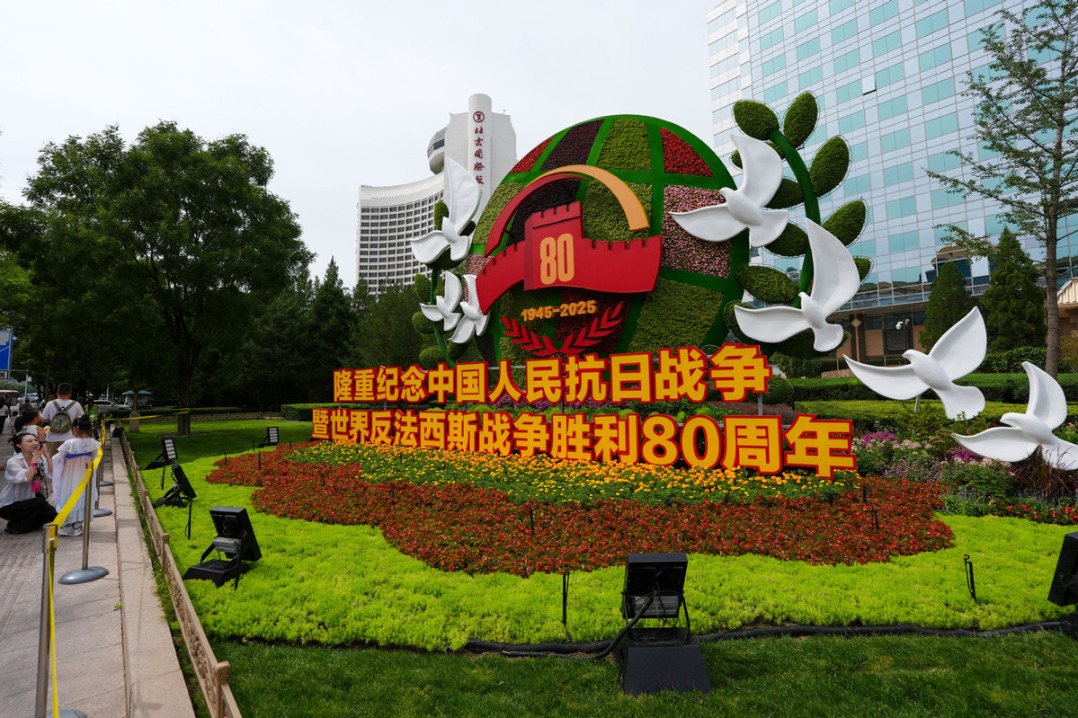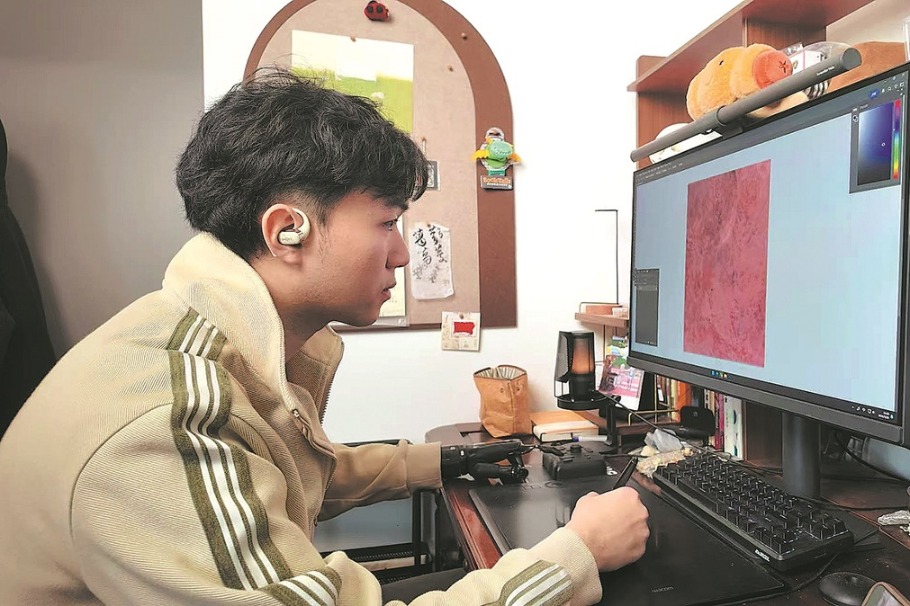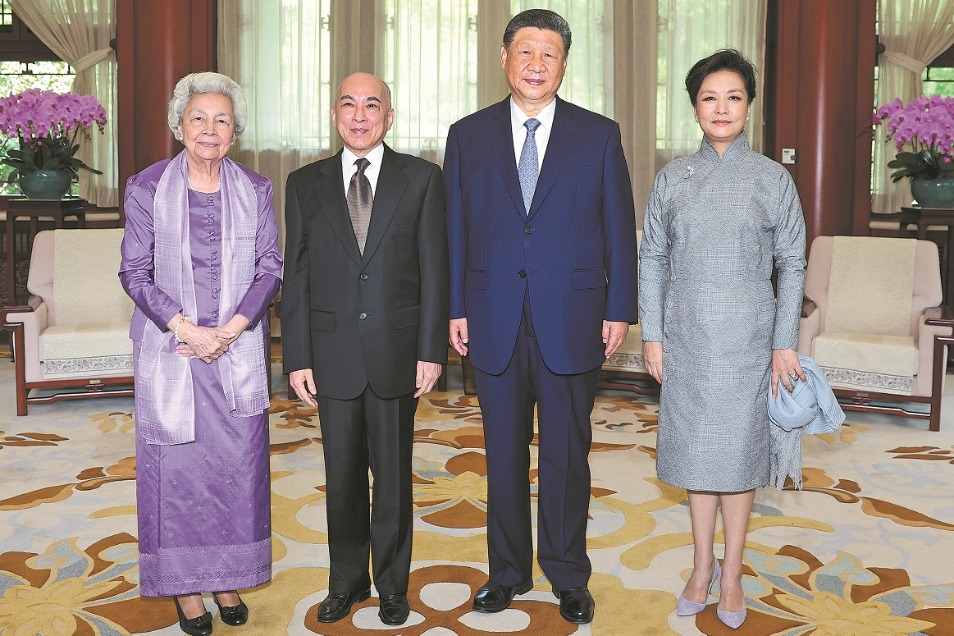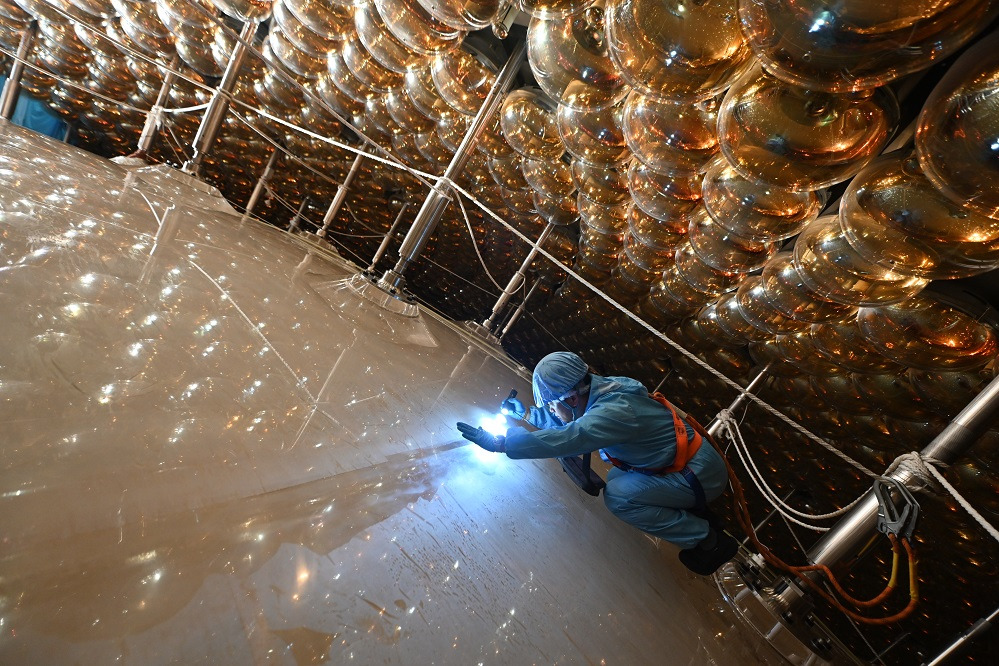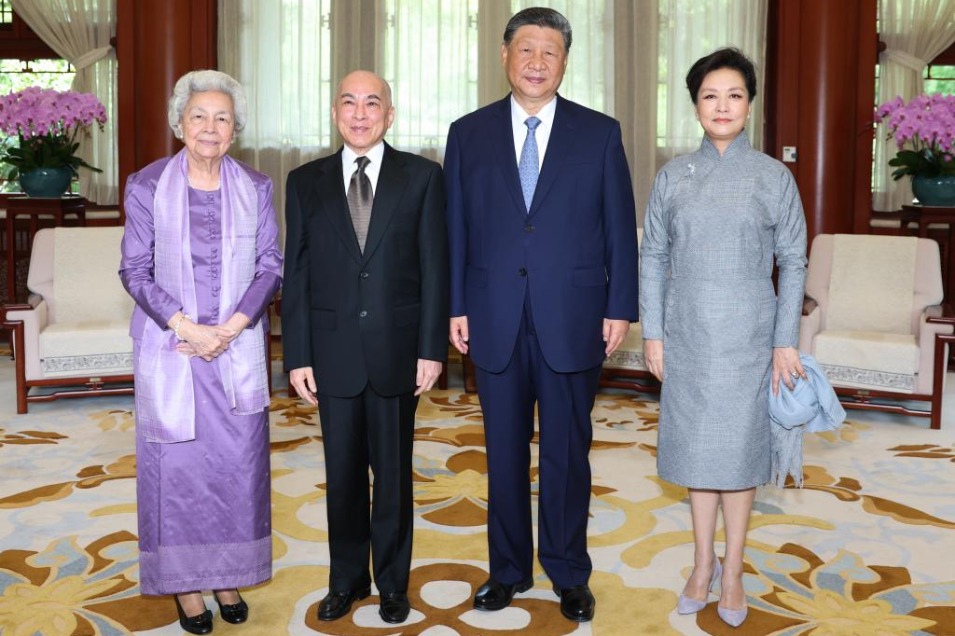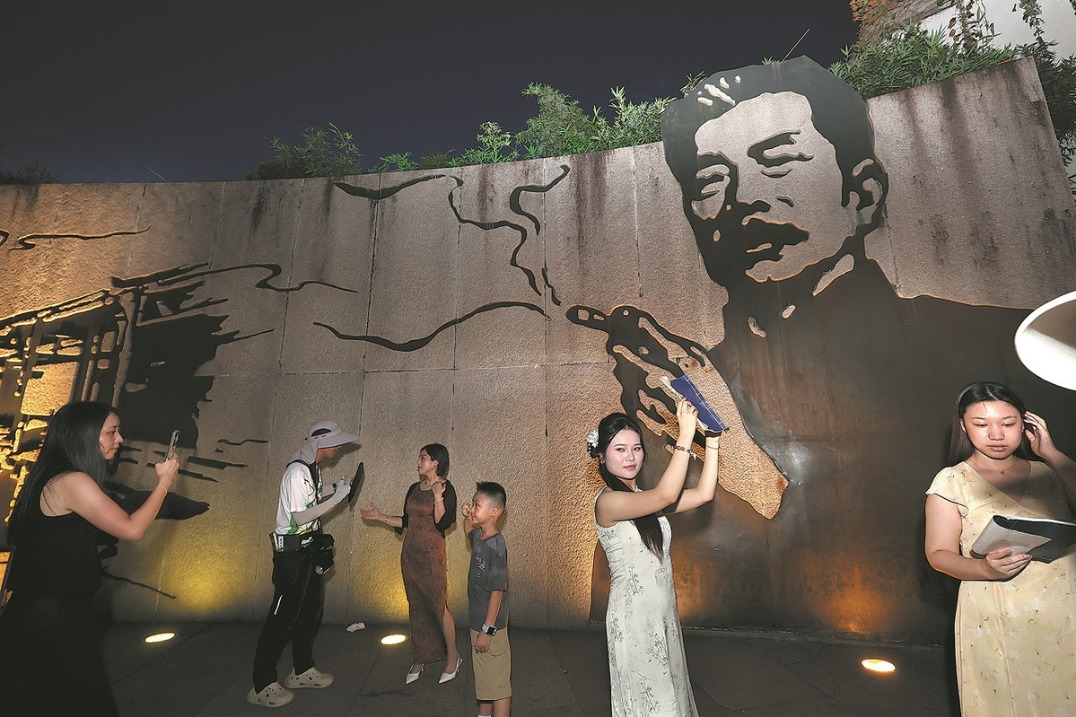Modernizing the land of clouds and mist
Guizhou official attempts to balance conservation and development in a once-isolated Miao community, Chen Meiling and Yang Jun report.

Inside the clouds and mist of upstream areas of the Wujiang River in Bijie, Guizhou province, there is a small village called Huawu whose story offers a microscopic view into countrywide efforts at balancing rural development with ecological conservation.
Huawu is predominantly occupied by the Miao, an ethnic group who have traditionally lived in mountainous areas across South China. In the past, Huawu's villagers, like those of many other communities living on the banks of the Yangtze River and its tributaries, made a living by fishing.
However, overfishing led to water pollution in the 1,037-kilometer river, and it once stank due to neglect of this damage. Xu Lei, 33, Party secretary of Huawu, believed the village's economic model was unsustainable. The young woman, together with other village officials, made bold plans to change this — first, banning fishing; second, building sewage treatment facilities across the village; and third, capitalizing on the village's picturesque landscape and unique culture to develop tourism as a pillar industry.
It was not easy. Like many other isolated mountain communities in Guizhou, Huawu used to be deeply impoverished. Residents' per capita net income was 2,450 yuan ($341) in 2012. Following a 10-year fishing ban on the Yangtze enacted by the central government starting Jan 1,2021, in response to dwindling fish stocks and declining biodiversity, the former fishermen in Huawu had to turn to other professions to make a living.
At first, villagers were worried about their livelihoods and showed strong opposition to the policy, Xu says. To persuade them, she organized meetings every day with villagers to answer their queries. She explained to them that, owing to such beautiful scenery near their houses, developing tourism was a better way to reap wealth.
Some villagers said they didn't have the money to open a bed-and-breakfast, so Xu helped them apply for loans from banks. Some villagers worried they did not have the proper skills, so Xu invited workers from a chef training school and hotels to train them. Some said the village lacked its own characteristics, so Xu worked to renovate its architecture in a Miao ethnic style.
"We need to regard residents' affairs as our own family affairs, and put ourselves into their position, to offer the best solution for them," Xu says.
Now, the village has about 60 bed-and-breakfast venues. Xu also invited local women to build a singing and dancing performance team, and a tour guide team, which has organized 176 excursions this year. Huawu has received over 700,000 tourist visits since 2021, bringing in a total income surpassing 300 million yuan. Per capita net income reached about 19,000 yuan last year.
Villager Yang Changkun, 49, used to play lusheng (a reed-pipe instrument) and dance in a performing team in nearby urban centers. He returned home because of illness in 2013. Before 2019, he and his family sold baked potatoes to tourists along the river.
"Xu told me that (such activity) was not a good scene to see, and the income was not high. She encouraged me to clean up our house and run a business from home," Yang says. Now Yang's homestay earns him about 100,000 yuan a year.
"Xu often visited villagers' houses, learning about our condition. She always told us to make use of available resources and offer good services. Now everything is on the right track, and we are willing to participate in the village's development," he adds.
Xu attached importance to details such as sanitation and the price of food. The village has received funds totaling 7.91 million yuan to improve infrastructure such as public restrooms, sightseeing footpaths and camping bases.
Some other villagers became forest rangers and river cleaners. Yang Qingxin used to make a living by fishing over a decade ago. In 2019, he joined the river protection team. Every day, he and his wife patrol the river and clean rubbish. In January, they opened a homestay.
"We patrol the river however busy we are. If the river is not clear, no tourists will come. A good environment brings a good life," Yang told Xinhua News Agency.
To avoid water pollution, sanitary sewage is no longer emitted into the river; instead, it is dealt with by 123 sewage treatment facilities across the village. The village has been replacing fossil fuel-powered boats with new energy-powered ones since 2021. More waste disposal equipment has also been purchased.
Now the water quality in Huawu has recovered to Grade II and above. China has a five-tier rating system for the quality of water, with Grade I the best. Grade III is the threshold level for drinking water.
To enlarge villagers' income, Xu developed the village's livestock, agriculture and artisanal products, emphasizing cattle, yellow ginger and braised glutinous rice cakes, as well as promoting production and sales of Miao embroidery. She also invited livestreaming anchors to train young women to promote local specialties. Per capita net income is expected to exceed 28,000 yuan this year, she says.
"Grassroots work needs to, under guidance of the Party, change old ideas and promote new ones to realize high-quality development," Xu says. "Rural governance is very complicated and needs to be done with patience and sincerity."
Xu, a delegate to the 20th National Congress of the Communist Party of China, says that while participating in the event, she hoped to share with the country the story of Huawu's efforts at ecological conservation, rural vitalization and improving people's livelihoods.
"Each generation has their own Long March to travel and their own responsibility to shoulder," she says. "I have seen a leapfrog in the development of Guizhou over the past decade, and know it is the result of the hard work of older generations. We should not only cherish it but also make efforts to build a better era."
Wang Jin in Guiyang contributed to this story.





















